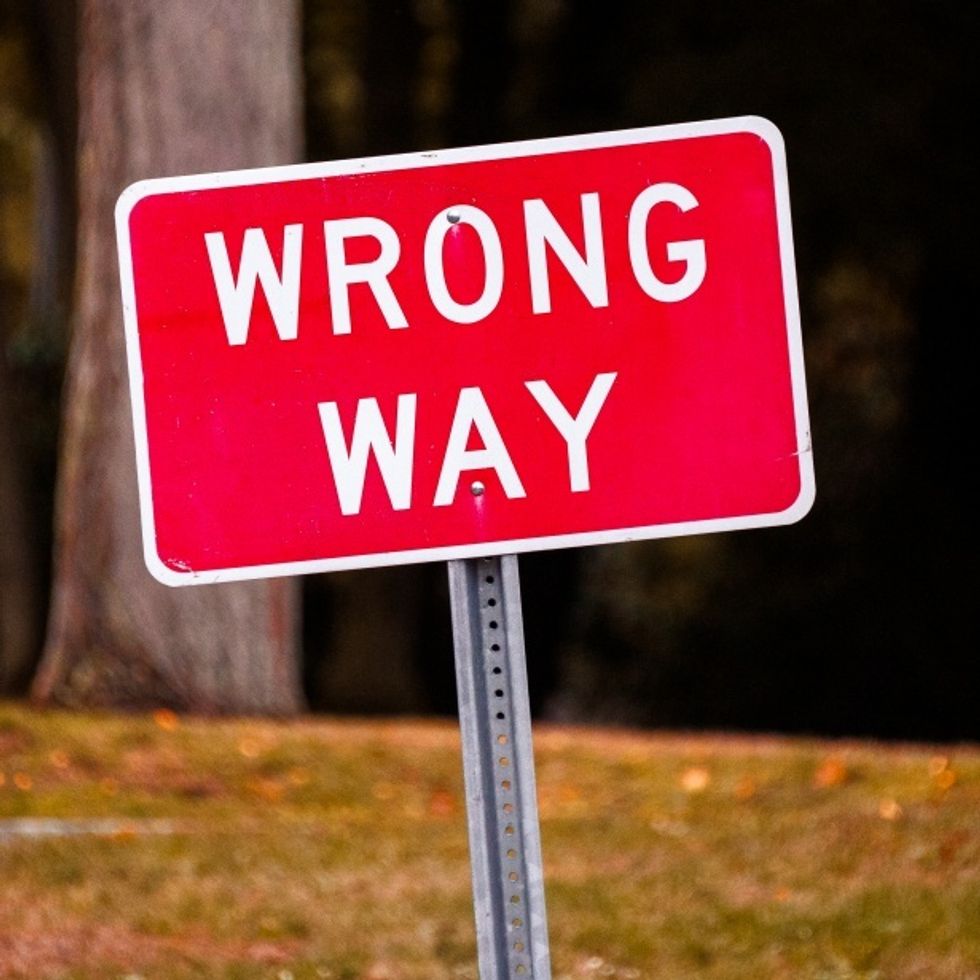First and foremost, I need to give credit where credit is due: this article is inspired by and based on a TED Talk given by Kathryn Schulz called "On Being Wrong." If you have a few minutes, I highly recommend giving it a listen, but I'm also going to highlight what I think are Schulz's most important ideas here.
The point in Schulz's TED Talk when she really grabbed my attention was when she asked audience members what it feels like to be wrong. She got responses like: dreadful, embarrassing, and a thumbs down. She told the audience that those were great answers, but answers to a different question. The audience was answering what it felt like to realize you're wrong, and realizing you're wrong does feel embarrassing and humiliating and kind of awful, but actually being wrong feels like being right. Before it dawns on us or we come to the conclusion that we're wrong about something, we think we're right, and so the two feelings are the same.
But the reason being wrong and knowing we're wrong come with two opposite emotional responses, is because we're taught from a young age that if we're wrong about something, that means there's something wrong with us. If we fail a test it's assumed that we're stupid or lazy, so we get this idea in our head that the only way to be successful is to never be wrong and never make mistakes. Unfortunately, this is an impossibility.
Part of our innate human nature is inductive reasoning. Inductive reasoning is our ability to jump to a conclusion based on some amount of evidence, whether it be a little or a lot. Inductive reasoning is how we come to all conclusions about everything in life, because the other option is to have all the evidence, which simply isn't possible. To have all the evidence would mean to know everything about everything, and even if our brains did have the capacity to hold all that knowledge, there isn't enough time in the world for someone to learn that much. Which means we have to use inductive reasoning and come to conclusions based on an insufficient amount of evidence, and that opens us up to the possibility of being wrong.
However, the truly unique thing about this kind of reasoning is it shows us that the very thing that makes us wrong, is also what makes us right. As I said, inductive reasoning is how we come to all conclusions about everything − things we're wrong about and the things we're right about alike. In other words, in order to stop being wrong, you'd also have to stop being right.
So, as a society, a culture, and a species, we need to each do our part to put an end to the stigma around being wrong. It's part of what makes us human. It doesn't mean we're stupid or lazy, it just means we used the evidence to come to a different conclusion. As Schulz says towards the end of her talk, when it comes to stories, TV shows, movies, and more, we love to be wrong. We love a good plot twist or a thrilling surprise where the unexpected happens and we think one thing is going to happen, but something else happens instead. We find enjoyment in the unexpected because if everything happened as we predicted, it'd be pretty boring.
So why is it not the same in real life? Why don't we look at the times when we are wrong as unexpected plot twists and move on? Being wrong isn't a disease or a defect we need to eliminate; it's an opportunity to grow, to learn, and to change for the better.
















